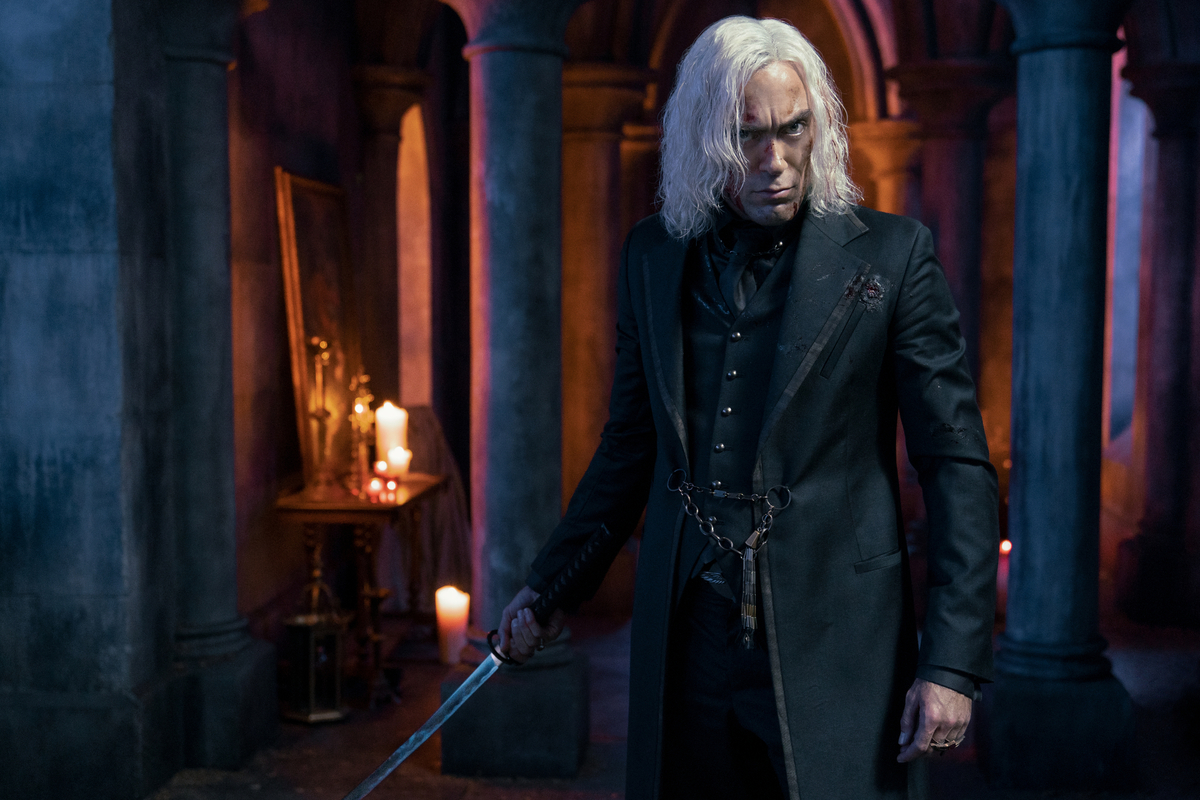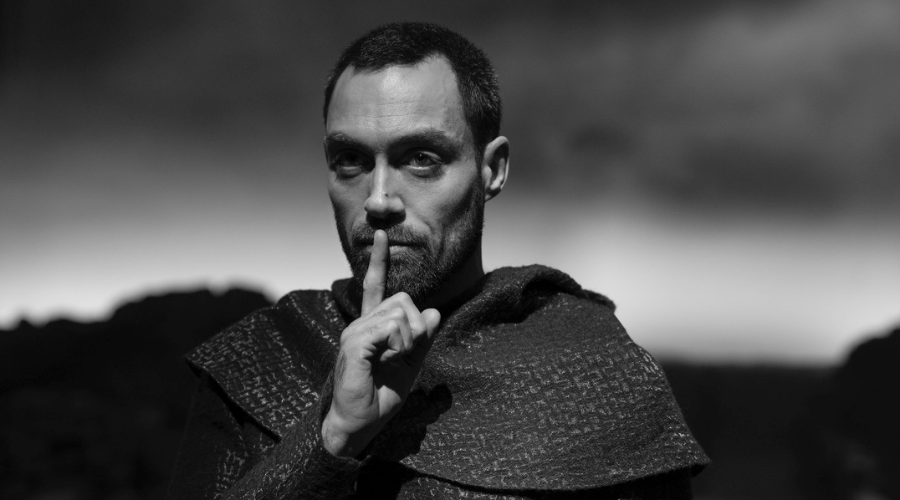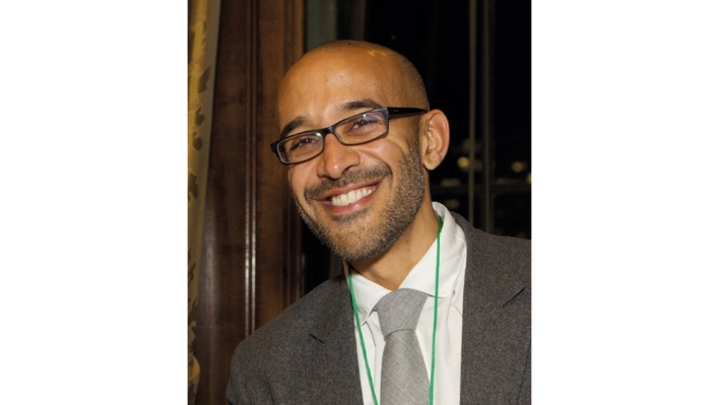Alex Hassell stars as the villainous Vicious in the new Netflix sci-fi series Cowboy Bebop and Ross in Joel Coen’s The Tragedy of Macbeth, which streams on Apple TV+ in January.
Did you always want to act?
Since the age of 12, when I saw a local youth theatre musical – there was this big group of young people having a really good time and I knew it was for me. I joined a local amateur company in Essex, where I grew up, which put on musicals, and acted in every spare moment. I played Bugsy in Bugsy Malone, which was an amazing start, and then did tons: Guys and Dolls, Hello Dolly! and Oliver!. I had tap, jazz, ballet and singing lessons – I just wanted to be an actor.
You haven’t continued as a song and dance man…
I was with the National Youth Music Theatre before drama school, and other members of the cast have gone on to become huge musical stars, but I didn’t have the same confidence in my voice. I also got turned on to Shakespeare fairly early, and it’s the psychological complication of parts that interests me.
Did you have acting heroes?
Jimmy Dean and Marlon Brando – they blew my mind. They were iconic, beautiful, intriguing and complex. They were these explosive, volcanic forces. And cool – everyone wants to be cool. Latterly, Mark Rylance has been an enormous influence. I had the great pleasure of working with him during a formative period of my acting life.
Was it difficult starting out?
I went to the Central School of Speech and Drama and, after graduating, I did adverts, “cough and spit” parts in TV and little bits of theatre. Like most people at that age, I thought I’d walk out of drama school into a Martin Scorsese film. That happens for one person in a million but, for me, it’s been a much longer, up and down, path.
I definitely questioned whether or not I was going to make it – there’s a lot of rejection in a job like this. The question you have to ask is: “Is the pain worth the bits of happiness you get out of it?” So far, it’s never tipped too far in the wrong direction. Faith, or delusion, is a massive part of sticking at it.
What was the first TV programme you acted in?
Hawkins, a BBC drama starring Robert Lindsay. Sheridan Smith, who was at the National Youth Music Theatre at the same time as me, had a big part.
In my scene, I was sat behind her in a lecture room and my character had to stand up and complain. They cut out the bit of me getting up and speaking, so I was just an extra in the background, huffing and puffing away. I was billed in the Radio Times as “Phil Hassell” – it was an ignominious beginning but, in a way, it was good, because Phil Hassell was crap.

How does working in TV and film compare with the theatre?
In theatre, I slowly built up to the Royal Shakespeare Company – by the time I got there, I felt I knew what I was doing. My journey in TV and film has accelerated quite quickly recently, so, slightly unexpectedly, I have been with enormously famous people and with a massive amount of money riding on everything.
The first time I was dropped into this crazy A-list world was Suburbicon, with George Clooney directing and Matt Damon and Julianne Moore starring. I’d been on stage with the RSC in Henry IV, Henry V and Death of a Salesman, and hadn’t been on a set for three years – I didn’t feel I totally knew what I was doing.
So, a big part of the job is not freaking out – you don’t want to be shit. The wonderful thing about doing The Tragedy of Macbeth was, because I have all this Shakespeare experience, it wasn’t a question of, “Can I do it?”. It was: “How are we going to do it?” – that felt great.
What do you bring to work with you?
The script, a notepad, and a reusable bottle and coffee cup. Sometimes, headphones. But I try not to sit on my phone – film sets should have this camaraderie and, if everyone’s on Instagram, it changes the atmosphere. For Cowboy Bebop, I had my sword with me to practise.
Did you do all your fight scenes in Cowboy Bebop?
I did about 90%, which I was super proud of. I learnt how to fight with a sword and do all the action stuff. I absolutely loved it.
What are the best and worst parts of the job?
The worst is the not knowing – what you’re doing, where you’re going, whether you’ve got a part, whether you’re going to let your family down if you’ve arranged something, how much money you have or haven’t got…. The best part is working on brilliant material with brilliant people.
Are there any tricks of the trade you can share with us?
Learn your lines, really, really well. It sounds obvious, but if you know the lines, you can work on the character underneath.
What makes a good actor?
Empathy and patience. There’s a difficult dichotomy in acting: an actor has to be thin-skinned and emotionally available, but also thick-skinned to withstand the travails of being an actor – the amount of rejection is huge.
What advice would you give to an aspiring actor?
If acting really is the thing and you have to do it, then do it. Work at getting better – if you just wait for a job, you’re going to seize up. At the risk of being pretentious, as Hamlet said: “The readiness is all.” Always be as good as you can possibly be in every audition – even if you think the part’s shit or you’ve no hope of getting it. You’ll get a reputation for being good and then, at some point the right part will come along.
Is there anything you’d like to act in?
Right now I’d be excited to do a film where I’m a real person in a contemporary setting, facing normal people’s problems, a relationship drama. A lot of my work recently has been set in the past, the future or an alternate world. The Richard Linklater trilogy [Before Sunrise, Before Sunset and Before Midnight] – I’d love to do something like that.
What will we see you in next?
A TV series, a British-US co-production, which I’m afraid I can’t talk about. Then, I don’t know – I’m hustling for a job like everyone else.
Cowboy Bebop is available now to watch on Netflix and The Tragedy of Macbeth will premiere in selected cinemas on 25 December and globally on Apple TV+ on 14 January. Alex Hassell was interviewed by Matthew Bell.







